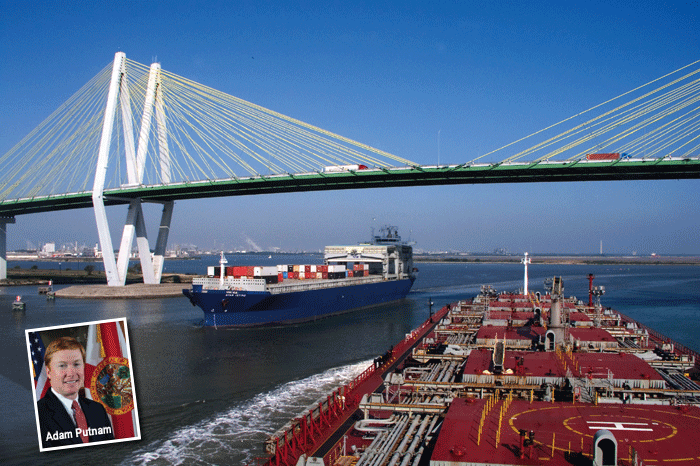OUR ECONOMY is more global than ever. Boundaries, currencies, and cultures are no longer impediments to the exchange of goods, services, and ideas. New technologies and innovations in transportation have helped us break down these barriers to trade, and the expansion of the Panama Canal, which is expected to be completed in 2015, will further expand opportunities for global trade.
The expansion of the Panama Canal is a game-changer in global trade logistics. The newly constructed, larger locks will enable post-Panamax ships, with more than double the cargo capacity, to pass through the canal. The exponential growth in trade that will inevitably follow will provide tremendous opportunity for the state and Florida’s more than $100 billion agriculture industry, but it also presents an increased risk to Florida agriculture.
Over the years, Florida has earned the reputation as an invasive pest and disease hotbed. Florida’s warm climate, nearly 100 million visitors a year, and growth in international trade have all contributed to the problem. Unwelcome pests like the giant African land snail, a snail the size of a human hand that feeds on structures and 500 varieties of plants, or the Asian citrus psyllid, a tiny insect that spreads citrus greening, are examples of invasive pests that present serious threats to Florida agriculture.
One of the many ways the Florida Department of Agriculture and Consumer Services (FDACS) is working to protect Florida agriculture from pests and disease, while supporting increased international trade, is through a partnership with the U.S. Department of Agriculture (USDA) and the Department of Homeland Security (DHS) Customs and Border Protection. Currently, imports of fresh fruits and vegetables from certain countries are prohibited from entering the United States through Florida ports due to significant risk of introducing pests and disease. Through our partnership with USDA and DHS, however, we’ve developed a pilot program that allows specific produce from certain countries to enter Florida ports after receiving cold treatment to prevent the entry of pests and disease.
The cold treatment brings produce down to low temperatures for an extended period of time in order to eliminate any invasive pests that may have accompanied the produce shipments. This pilot program, which began in October 2013, is a great example of how we can work together to protect our domestic food supply from the threat of invasive pests. If we can effectively eliminate invasive pests from shipments of produce, South Florida ports will be able to accommodate new products that previously were restricted to ports in the Northeast.
I take my responsibility to protect and grow Florida’s agriculture industry very seriously, so I have personally traveled to Panama, and other department leaders have traveled to Peru, to evaluate the progress and effectiveness of the pilot program. After these visits, and more than a year into the pilot program, I am confident we can aggressively protect Florida and the nation’s agriculture industry while capitalizing on opportunities to further expand Florida’s international trade in this increasingly global economy.
CREDIT
by Florida Commissioner of Agriculture ADAM H. PUTNAM

